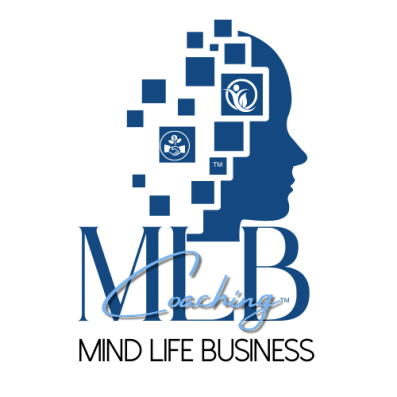The following ethical standards govern ICF Professionals' professional activities:
Section I: Client Obligations
As an ICF Professional, I: 1. Explain and ensure that my coaching clients and sponsors understand the nature and potential value of coaching, the nature and limits of confidentiality, financial arrangements, and any other terms of the coaching agreement prior to or at the initial meeting.
2. Create an agreement/contract outlining the roles, responsibilities, and rights of all parties involved with my client(s) and sponsor(s) prior to the start of services.
3. Maintain strict confidentiality with all parties as agreed.I understand and agree to follow all laws about personal information and communications.
4. Recognize how information is shared among all parties involved in all coaching interactions.
5. Develop a clear understanding with both clients and sponsors or other interested parties about the circumstances in which information will not be kept confidential (e.g., illegal activity, if required by law, pursuant to a valid court order or subpoena; imminent or likely danger to self or others; etc.).If I have a good reason to think that one of the above situations is true, I may need to tell the right people.
6. When working as an Internal Coach, I manage conflicts of interest or potential conflicts of interest with my coaching clients and sponsor(s) through coaching agreements and ongoing dialogue.Addressing organizational roles, responsibilities, relationships, records, confidentiality, and other reporting requirements should be included.
7. Keep, store, and dispose of any records created during my professional interactions in a way that promotes confidentiality, security, and privacy while also complying with all applicable laws and agreements.I also try to use technology-assisted coaching services in the right way and know how different ethical standards apply to them.
8. Be on the lookout for signs of a shift in the value you receive from the coaching relationship. Change the relationship or encourage the client(s) or sponsor(s) to seek another coach, professional, or resource if this is the case.
9. Respect the right of both parties to end the coaching relationship at any time during the process, for any reason, as long as it doesn't violate the agreement.
10. Recognize the risks of having multiple contracts and relationships with the same clients and sponsors at the same time in order to avoid conflicts of interest.
11. Recognize and actively manage any power or status disparity that may exist between the client and myself as a result of cultural, relational, psychological, or contextual issues.
12. Inform my clients about the possibility of receiving compensation and other benefits in exchange for referring them to third parties.
13. Make sure that the quality of coaching is always the same, no matter how much or how you are paid.
Section II: ICF Professional Responsibility for Practice and Performance, I:
14. I will follow the ICF Code of Ethics in all of my interactions. When I become aware of a potential violation of the Code by myself or another ICF professional, I respectfully bring it to the attention of those involved. If this doesn't solve the problem, I take it to a formal authority (like ICF Global) to be solved.
15. Require all support personnel to follow the ICF Code of Ethics.
16. To achieve excellence, commit to continuous personal, professional, and ethical development.
17. Recognize my personal limitations or situations that may impair, contradict, or interfere with my coaching performance or professional coaching relationships.I will seek assistance in determining the appropriate course of action and, if necessary, will seek relevant professional advice as soon as possible. This could mean suspending or ending my coaching relationship.
18. Take care of any conflict of interest or possible conflict of interest by talking to the people involved, getting help from a professional, or temporarily stopping or ending the professional relationship.
19. Respect the privacy of ICF Members and only use their contact information (email addresses, phone numbers, etc.) when ICF or the ICF Member gives you permission to do so.
Section III: Professional AccountabilityAs an ICF professional, I:
20. Identify my coaching qualifications, coaching competency, expertise, experience, training, certifications, and ICF credentials precisely.
21.Make true and accurate verbal and written statements about what I offer as an ICF Professional, what ICF offers, the coaching profession, and the potential value of coaching.
22. Tell people who need to know about the ethical responsibilities set by this Code and raise their awareness of them.
Accept responsibility for being aware of and establishing clear, appropriate, and culturally sensitive boundaries that govern physical and non-physical interactions.
You must not have any sexual or romantic relationships with the client(s) or sponsor(s).I will always be mindful of the appropriate level of intimacy for the relationship. I will take the necessary steps to resolve the issue or cancel the coaching engagement.
Section IV: Social Responsibility as an ICF Professional, I:
25. Prevent discrimination by upholding fairness and equality in all activities and operations, while adhering to local rules and cultural practices. Discrimination can be based on age, race, ethnicity, sexual orientation, religion, national origin, disability, or being in the military.
26. Recognize and respect others' contributions and intellectual property while claiming sole ownership of my own material. I understand that if I don't follow this rule, a third party could take legal action against me.
When conducting and reporting research, I am honest and work within recognized scientific standards, applicable subject guidelines, and the boundaries of my competence.
28. I am aware of my and my clients' societal impact. I believe in "doing good" rather than "avoiding bad."

